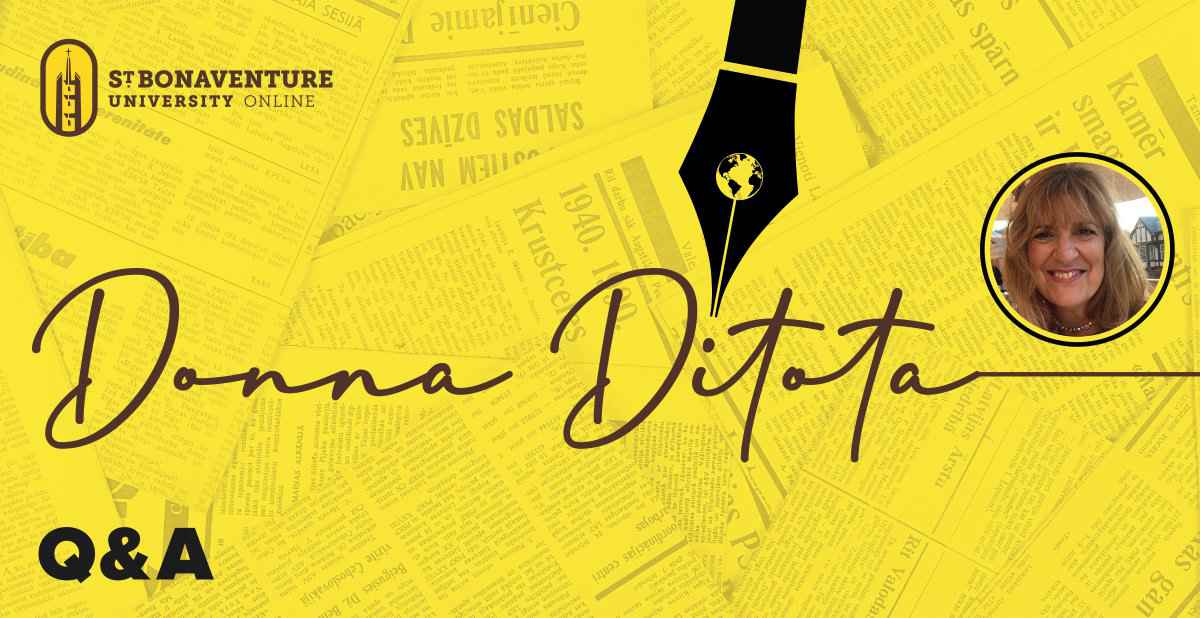
Sports Journalism: Finding Success in a Male-Dominated World
Sports journalism is among a long list of male-dominated fields: Construction, engineering, agriculture are others, to name a few. We recently asked Donna Ditota, a basketball writer for The Post-Standard and syracusedotcom, some candid questions around breaking into the field.
About 11% of sports reporters (in the US and Canada) are women. Do you think that discourages women from entering the field? Why did you decide to pursue a role in this industry?
I wanted to become a sportswriter because I was interested in sports and interested in writing/journalism. It was really that simple. I don’t know whether the continuing lack of representation of women in the industry discourages other women from seeking a job in sports journalism. But I don’t think it helps. It saddens me to say I have stayed in the business for as long as I have because I find those low representation numbers to be, frankly, ridiculous. But I don’t know the answer to improving the number of women in sports journalism, either. I taught a sportswriting class for a few years at Syracuse University. The vast (and I mean vast) number of students in that class were men.
Interest in women’s sports is at an all-time high. Why do you think it receives only 4% of total sports media coverage?
Because the (vast) majority of sports editors are men? I think that’s partly to blame. But it’s more complicated than that, too. This is a results-based business. We base a lot of what we cover on what gets read. We meter everything that goes up on our website and for the most part, stories about women’s sports are not read as much as stories about men’s sports. (We can get into a whole, more nuanced conversation about the placement of those stories on the website, but that’s an item for a different day.) This is, obviously, a generalization. And it begs the question: If women’s sports were covered more comprehensively by really good writers, would more people read those stories? I don’t know the answer to that question. But I don’t think a lot of news organizations are willing to find out.
Did you have a female mentor who helped encourage you in this profession? What was the best advice you received?
I have not had a female mentor, mostly because I belong to a generation of women who were among the first sportswriters to be female. I do have women friends in the sports journalism business and we talk from time to time about why there still are so few women sportswriters. It’s just weird to exist in a workplace of basically all men. But these conversations rarely come up. We have more interesting things to talk about.
I have offered advice to women over the years when they’ve asked. My main talking points: Be tough, be persistent, work on developing relationships on your beat, read a lot, show up and observe, be infinitely curious. So, nothing gender-specific. Basically, do your job.
What has been the highlight of your career to date? What do you strive to cover?
I get asked this question a lot. And honestly, I have given no thought at all to highlights in my career. None whatsoever. I’m not somebody who lives in that kind of professional past. In every story, I want to tease out unique and interesting information from the people I’m interviewing and write a story that accurately and entertainingly provides readers with information. I prefer in-person interviews where I can gauge answers and pivot when I need to. I will settle for phone interviews. Written questions are an absolute last resort. I rarely agree to them.
What excites you about the future? Where do you see the industry in 10 years’ time?
Ah, the Big Question! I have no great insights about the future of sports journalism, though I will say that digitizing newsrooms has provided and will continue to provide much better visuals and more unique content at a much quicker pace. I can tell you what I hope it does not become and that is an industry reliant upon official sources to distribute information that we as reporters are meant to digest and craft something from. I worry that sports information people (in colleges) and PR people (in the pros) will gain more power to present their people and their teams in only flattering ways and that our access to athletes will wane. I worry that too many journalists will spend too much time aggregating the work of a few and not enough time investigating stories of their own. I worry that we will lose thoughtfulness and inventiveness in the business. So, I guess I worry a lot?
What does gender equality mean to you?
Gender equality means never having to be asked why women are so misrepresented in whatever topic is offered for discussion.
To check out some of Donna’s work visit Muck Rack. To master your craft and become a modern-day sports journalist, contact the St. Bonaventure University admissions team.
